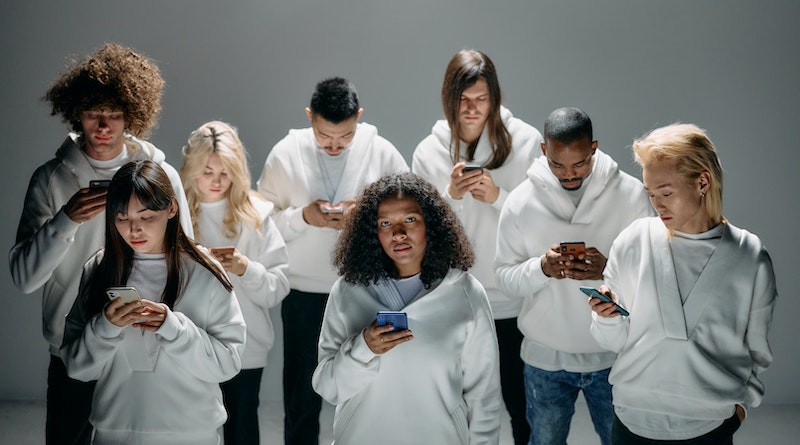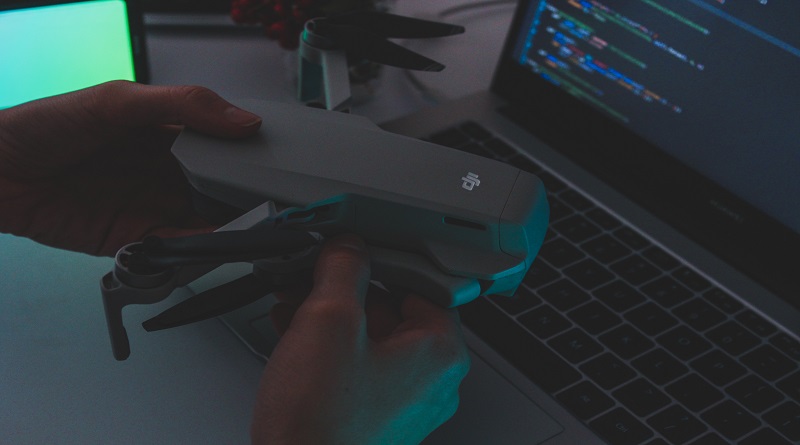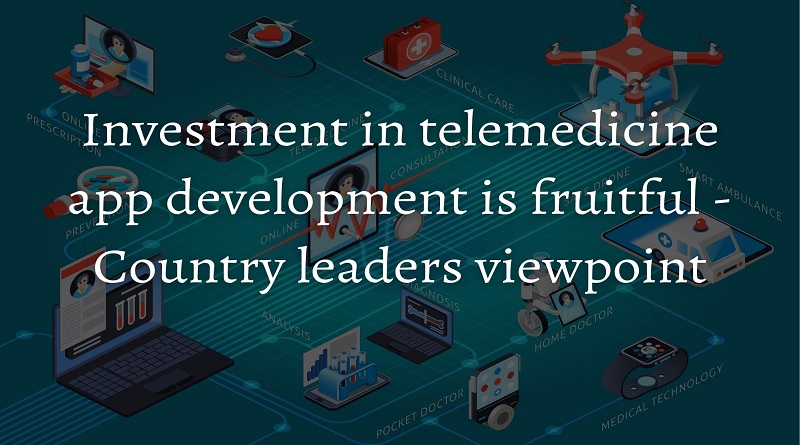NOMOPHOBIA: 4 HARMS OF SMARTPHONE ADDICTION

Over the last few decades, technology has been increasingly adapted, reaching the point of fitting in one’s own hand.
On the other hand, the same evolution that brought access to telephony and internet services for so many also brought the problems caused by excessive personal exposure. The expansion of social networks and relationships has virtualized people’s lives and routines, to the point that nowadays there are very few people who feel able to live without, every minute, checking their cell phone for anything.
CLEAR PROBLEM AMONG YOUNG PEOPLE
The problem of overexposure to the virtual world is even more evident among teenagers.
Many of them can’t even imagine their lives without the connectivity they’ve always had at hand. The so-called nomophobia is even more common, a relatively new psychological disorder, in which the individual is seized by an irrational fear of being without a cell phone.
WHAT IS NOMOPHOBIA
The origin of the term comes from the junction of the English words no+mobile+phobia, which means, almost literally, “fear of being without a cell phone”.
This phobia manifests itself, for example, if the person feels distressed when the cell phone battery is about to run out, experiences an immense fear of being without signal for several hours, or even checks the notifications incessantly (even hearing alerts that never played), as if being without the device, even temporarily, would cause you some harm or acting as if your life depended on it.
Nomophobic individuals are basically people who cannot live their lives disconnected from smartphones or the virtual world.
Interestingly, this simple definition directly relates to almost all teenagers or young people whose social, academic, professional and personal life depends solely on the use of a smartphone.
OVEREXPOSURE DISGUISED AS CONNECTIVITY
Although the internet has been established for just over 30 years, studies show that the number of people dependent on cell phones increases exponentially, and the huge amount of facilities arising from the numerous applications and services offered by the mobile world has not helped much in these statistics.
However, even though nomophobia is a predominant characteristic among teenagers and young people, the generation defined as “digital natives”, they are not the only ones who are exposed to the dangers and harms of this overexposure disguised as connectivity.
From one moment to the next, we found ourselves more attached than ever to the devices, and increasingly dependent on them, since, with the emotional shaken by social isolation, virtual communication was almost always the only way to replace face-to-face visits ” forbidden”, exchange ideas, work, study, see a doctor or even find some comfort for the loss of a loved one.
DISPROPORTIONATE LEVELS OF ANXIETY AND STRESS
But the real problem is characterized not by the time you stay connected, but by the way you use your cell phone.
In recent surveys, when being unable to use their smartphones, most respondents showed levels of anxiety and stress comparable to going to the dentist or even their wedding day.
Most attributed this anxiety to the lack of contact with family and friends, which is a paradox, since a large part of the disagreements and lack of communication between family members and friends seems to come precisely from the practice of a pseudo-presence, that is, when if you prefer to remain on your cell phone, even if you are next to someone with whom you should maintain quality face-to-face contact.
Another attitude that fits this pattern is when people prefer to communicate via text messages, even when standing next to each other.
SYMPTOMS OF NOMOPHOBIA
For some, nomophobia should not even fit among phobias, as these are characterized as “irrational fears, without conscious control”. Following this reasoning, in theory, the disease would be more properly considered as an obsession, as it is perfectly perceptible, palpable and even more easily treatable.
Regardless, for two out of three people, the term “detachment” associated with the word “cell phone” should not even be mentioned without being seen as a big problem. To know the difference, you need to be aware of the main signs, characteristic of someone who may have nomophobia. Are they:
- Feeling unable to turn off your phone;
- Compulsively checking notifications for messages, calls and emails (some people give the excuse of checking the time, and they do it every minute, as they don’t even mentally register the time they see on the screen);
- Constantly put the cell phone to charge;
- Obsessively observing social networks and WhatsApp;
- Getting annoyed when the internet ends or having to stay in places that don’t have a wi-fi connection;
- Inability to go to the bathroom without taking the phone with you.
NOMOPHOBIA: HARMS OF SMARTPHONE ADDICTION
Check out 4 harms that smartphone addiction can provide.
1. Loss of productivity
Due to the habit of staying connected to the cell phone all the time, we ended up convincing ourselves that we can multitask. In reality, however, what is noticed is that, when trying to do other activities while on the cell phone, we end up losing part of the attention we give to one of the tasks that we believe we are performing. Without focus, what happens is that we cannot fulfill any of these tasks satisfactorily, which can often require rework, which, in the end, will take even longer than if we chose to perform one activity at a time.
This means, necessarily, that when you choose to multitask, your productivity will automatically suffer a drastic drop, as the brain will work on only one of the activities, and the others will be done “on autopilot”, that is, mechanically and without great focus. mental.
2. Apparent lack of education
It may seem boring, but it gets to be inelegant when someone gives up talking to you because they don’t pay enough attention when trying to talk, simply because one of the interlocutors pays more attention to the cell phone than to the conversation, without keeping the focus of what they should be listening.
3. Increased Anxiety and Depression
Knowing that nomophobia can generate anxiety and depression, another very contradictory fact is the finding that the more individuals keep in touch with their smartphones, the more likely they are to develop this disorder.
In other words, at the same time that people need to learn to detach at least a little from technologies so as not to develop disorders such as nomophobia, not having their devices close by causes them a deep suffering of anxiety, as if something dangerous or bad is happening. would happen precisely while they are disconnected, or as a result of having become incommunicado. It’s a vicious cycle – in this case, literally.
4. Propensity to insomnia
Scientifically proven countless times, it is undeniable that the blue light of the cell phone inhibits melatonin – a hormone that regulates the quality of sleep – and, consequently, keeps the brain on alert.
By checking emails, messages or social media “one last time” before bed, we supply our brain with thought-provoking information, which will make it difficult for the body to rest, greatly increasing the chances of keeping it on alert for longer than the wished.
Thus, those who have problems with insomnia, or even in relation to the quality or rhythm of sleep, need to be aware that they are not pumping themselves with information at times when they should be starting to relax to sleep.
If the answer is yes, it will probably be enough to step away from your phone for about an hour before bedtime, and set it to filter blue light or activate airplane mode at night to prevent glare. each notification is one more obstacle to the tranquility of your sleep.
TIPS TO AVOID DIGITAL ADDICTION
When it is found that it is not possible to somehow unlink or disconnect from technologies, it is certainly a sign that there is a problem that needs to be admitted, faced and regulated, and that perhaps it is time to take a break, for the good of all.
First of all, try to balance the time you spend with your cell phone, in relation to the time you interact face-to-face with people. Turn off your cell phone for a while, look for activities you can do offline (walking, running, talking to a family member or neighbor), and when doing them, avoid taking your cell phone with you.
If you prefer, divide your day into moments in which you use technologies, and others in which you interact personally, and try to keep the focus on the quality of use and distribution of time in each of these moments.
Put your cell phone ten meters away from you at night. This will probably not only help with the quality of sleep, but also prevent you from repeatedly hitting the snooze button, which usually only activates irritability and increases body fatigue when you wake up.
In a short time, you will see that building this habit, in addition to being healthier, will give you a sense of freedom that you will never want to part with again.
And if the situation is already at a level that you believe you will not be able to resolve on your own, seeking psychotherapeutic support may be a good idea.



